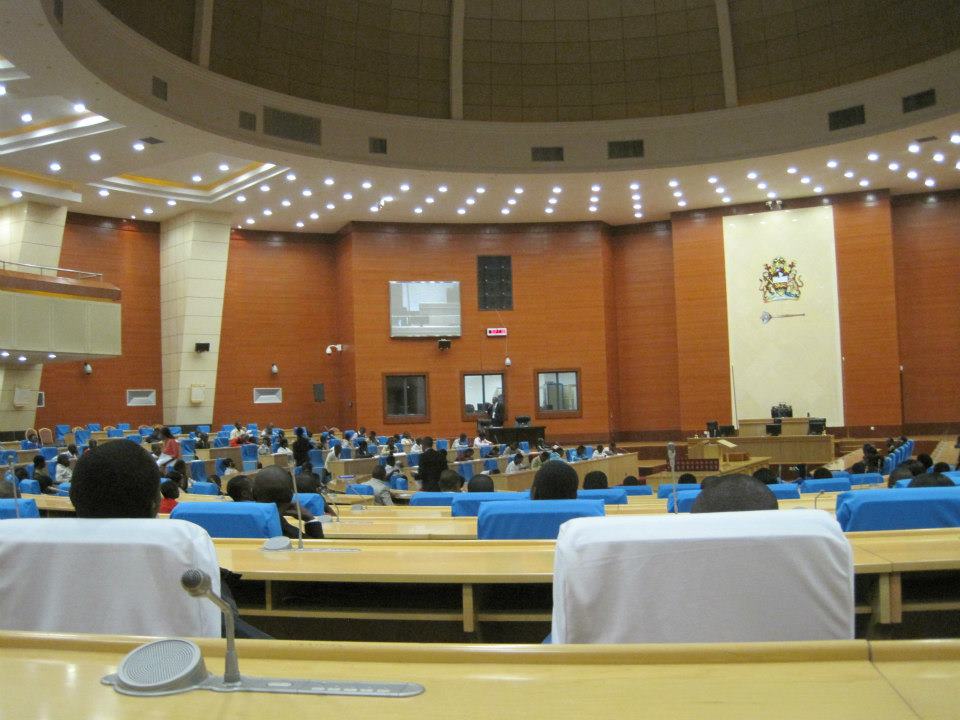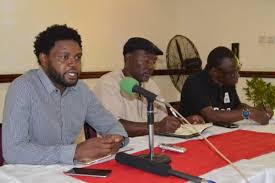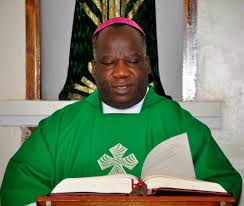By Steven Godfrey Mkweteza

On 7th September this year when school going children were returning to school after a five months break due to covid-19 pandemic, Flora Mangokwe (not real name) a young girl from a primary school around Chikwawa district was one of the seven standard eight girls not among the number. Why? Flora sadly passed on in August due to pregnancy-related complications.
“It all happened sometime in April when she was coming from selling ‘Zibwente’ at the trading centre when she was gang-raped by three men.
But Flora decided to keep the incident under her lap, heeding to an advice by the rapists not to disclose after persuaded her with some presents such as money and food,” her mother starts narrating the ordeal.
The mother, who was reluctant to speak about her only daughters’ death, said the family eventually started noticing some signs of pregnancy after sometime.
“She always wanted to be a lawyer and her performance in class was superb as she used to scoop position 3 in class. I’m sure she could have grown into a lawyer that she always wanted to be,” narrates the hopeless and desperate mother.
Flora’s mother, who is a housewife, attributed his daughters’ predicament to poverty at home.

According to her, the loss of job of her husband due to covid-19 marked the beginning of troubles in the family. She said since then, life has not been easy for the family to fend for the seven children.
“It was actually, a very painful experience ever. Sometimes, we could not eat for some days. So we eventually, decided to get a loan and start some businesses such like that of selling ‘Zibwente’ to support our livelihood. So Flora would help us in this business,” she explained in a broken voice overcome with despair.
Considering that Flora was still youngto nurse a baby from the unknown father,and that she was about to sit for the primary school leaving certificate (PSLCE) when schools re opened, she said the family decided to engage a traditional health expert to conduct an abortion on her.
She said the family could not endure the harsh treatment from the health workers and some other requirements at the health centers, hence, opted for the traditional expert.
However, despite the efforts, her condition worsened and she unsuccessfully aborted the pregnancy and sadlydied.
The story of Flora is shared by thousands of adolescent youth nationwide who are failing to succeed in their endeavors due to the rotten minds of some people.
Flora had all the assurance of education, until in August when death, the savage that snatched her life.
Abortion is a sensitive and contentious issue with religious, moral, cultural and political dimensions.
A report from the World Health Organisation estimates that over 19 million unsafe abortions occur worldwide each year, killing over 70,000 women and girls most of these deaths occur in poor countries such as Malawi, a country whose maternal mortality rate is estimated to be as high as over 1,140 deaths per 100,000 live births and has already ranks as one of the world’s worst.
The organisation says adolescents aged less than 16 years-a bracket within which Flora fell-face four times the risk of dying while giving birth than women aged in their 20’s. And chances of children born of these mothers dying within four weeks of their birth are 50 in every 100 higher than those born to older mothers.
Girls in Malawi suffer a lot of human and sexual rights abuses such as rape, defilement, incest, molestation and so on from men and boys, increasing their risk to various sexual reproductive health (SRH) cases such as HIV and Aids, early and unwanted pregnancies and deaths.
However, experts say due to ignorance of their rights, cultural factors and poverty escalating levels they do not report the cases but opt to undergo unsafe abortion
Statistics show in the country, an estimated one in five young women experience sexual abuse prior to the age of 18.
Unfortunately, only 9 percent of girls who have been assaulted receive any professional help.
A recent study conducted by the ministry of Health in conjunction with Ipas, an international reproductive rights and safe abortion organisation headquartered in the US, found that 141,000 women and girls engage in abortions every year, 386 to illegal abortion and 439 deaths every year.
The report further indicates that the country is also spending over MK300 million per year in treating those patients of post abortions. According to the 2015 research finding results, 85% of the unsafe abortions come from the faith community.
The report also says 53% of pregnancies are unintended and most girls prefer unsafe abortions. Therefore, the study urged government to liberalize abortion. It says women and girls, as young as 10 to 19 years, are forced to unsafe abortions to untrained midwives, without equipments or prescription drugs.
The Malawi penal code states that abortion is illegal except in order to save the life of the mother. But Ipas appealed to policy makers to revise the law and make it more effective.
Section 149 of Malawi’s penal code condemns any person who administers an abortion to 14 years imprisonment; while section 156 states that any woman who solicits an abortion is liable to 7 years in prison. Despite this, abortions still occur, usually performed by untrained personnel.
Programs manager for the organisation Luke Tembo, said governments in African countries such as Mozambique, South Africa, Zambia, Kenya, Uganda and Ethiopia have already legalized safe abortion.
He disclosed that in these countries, the rate of maternal mortality has been reduced.

“It is unfortunate that maternal mortality is very high in Malawi among other countries due to unsafe abortion. Ipas is fighting to improve reproductive health and provide safe abortion services.
Our strategies are; to increase women’s knowledge of access to effective contraception; to prevent unwanted pregnancy; provision of high quality post-abortion care and sensitizing policy makers to revise restrictive policies,” said Tembo
Tembo said it is recommended on the need for the country to amend abortion laws in a bid to reduce cases of maternal mortality rate mostly among the youth population.
Tembo further observed that archaic laws were contributing to the high levels of unsafe abortions in the country, hence the need to revise.
“It’s certainly those that are less educated, less economically empowered, who are at advantage.
I’m sure they are the ones that would seek unsafe abortion because they don’t have the knowledge, and obviously they would also go to facilities that are less than ideal for undertaking such procedures,” Tembo said during the world safe abortion commemoration day in Blantyre.
But not everyone is convinced of the need for more liberal abortion laws. Gloria Goba, Executive director of local health rights organization, Rural Development for Health initiative, said liberalizing abortion laws would be tantamount to giving people “a license to sleep around “which would eventually lead to an increase in Hiv transmission.
“If we have an open law on abortion, this would be subject to abuse because these women that are willingly getting pregnant will continue doing so knowing that once they are pregnant they have the option to end it,” she said
Most traditional and religious leaders in Malawi also consider abortion a sin and reject calls for its legalization.
The country’s major denomination the Catholic Church leader, archbishop Thomas Msusa, recently condemns legalization of abortion and family planning.

“The bible tells us the point at which life begins….God has designed that one should be born and no one should take that life away because that is murder,”
Sheikh AL haji Lawe, National publicity secretary for Muslim association of Malawi (MAM), claimed that Islam generally regards abortion as murder and that “in Islam, abortion is only allowed when there is proof from a medical doctor that the life of a mother will be in danger during delivery.”
On the other, some traditional leaders from the southern region under senior chief Chimombo of Nsanje district during a chief’s workshop recently asked parliamentarians to endorse the bill so as to reduce cases of child mortality rates in their districts and money that go towards treating the abortion cases.
Despite resistance from some religious traditional leaders, the country has a gender Equality Bill which among other things empowers women to make their own decisions regarding sexual reproductive health. Section 19(1) of the bill, gives “every person a right whether or not to have a child.”
Many people view the section as an indirect way of legalizing abortion which they say is an act against the will of God.
Malawi council of Churches, a mother body of all churches, pleaded with president not to sign the Bill into law until the abortion part is expunged.
An opposition parliamentarian, who opted for anonymity, said the issue of abortion cannot be supported and called upon government to remove the part arguing that sexual reproduction is already supported by other laws and initiatives and therefore cannot accept the legitimization of what he called an “immoral act.”
But chairperson for parliamentary committee on health Dr Mathews Ngwale disclosed that parliament is geared to deliberate and amend the proposed termination of pregnancy bill (TOB) as an attempt to show its commitment to the welfare of women and girls.

Ngwale, however, downplayed the fears that the bill is aimed at legalizing abortion in the country but saying it’s an affirmative action which seeks to seal the gap that is there between men and women.
The legislator, who wondered why Malawians were refusing to change the laws, said the members of parliament have no options but to assent to the bill.
‘Malawians need to change their mindset towards the bill and have a clear understanding on the negative impacts of unsafe abortions. Actually, we are not introducing a new law but making some amendments, which does not mean carrying abortions anyhow,” he said
Ngwale added that the bill will likely cost some MP votes if they fail to assent to it because it represents the women and men in their constituencies.
Women’s rights campaigners are also sounding the call to change the law with local and international rights organizational rights organizations such as the coalition for the prevention of unsafe abortion (COPUA).
Chairperson for the organization Emma Kaliya, is of the view that most Malawians most especially some quarters in the faith community do not understand the contents of the bill.
Kaliya said there was a need for the authorities to differentiate between human rights and religious beliefs, urging the religious community to go deep into the bill with sober mind in order to understand it quite well.
“If we need to be serious about this issue. We must be firm in demonstrating that this behavior is illegal and acceptable to the women.
As long as we just pay lip service to the problem, nothing will change,” she said, “adding that most of the unsafe abortion victims are from the faith community.
Among others, the amendments seek to regulate issues of safe abortion issues by clarifying the rights and obligations of the young women and men with a view to avoiding child mortality rates.
The bill also recommends that; if life is in danger, she should allow the abortion and if she is raped, the girl is allowed to choose whether to keep the pregnancy or not.
All in all, it is incumbent upon the various stakeholders to come with a solution to the unsafe abortion escalating cases for the betterment of our nation and future leaders.

